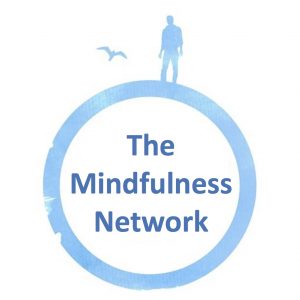
~ Written by Jiva Masheder who is one of our registered Mindfulness Network Supervisors and also offers Personal Practice Mentoring.
In this blog post, Jiva reflects on her latest research paper about supporting participants’ home practice ~
‘I don’t have time to practice’, ‘I can’t find the time to practice’, ‘sorry but I didn’t do as much as I wanted to’ – Does this sound familiar to you? As teachers we hear participants saying this in every group. And yet, we know that if people don’t find, or make, time to practice, they will miss out on the enormous benefits of mindfulness.
It was this experience (and the paucity of coverage in the mindfulness literature) that inspired me to write a paper on what helps people to establish and maintain a mindfulness practice, and experience the benefits that we know so well and want to share. I was curious to find out both to incorporate into my own teaching and also to share it with other teachers as we were all wondering how to approach this.
I drew on four sources which interestingly, though not surprisingly, had similar ideas. I read modern mindfulness literature, Buddhist literature, behaviour change literature and also did some in-depth interviews with participants at halfway through a course, at the end and a couple of months afterwards. Not much changed over those three timepoints, apart from the increased motivation to look after themselves and a greater understanding that mindfulness was a valuable contribution to doing that. That certainly chimed with what I often hear in week 8: ‘I’ve learned to be kinder to myself’ is a common benefit that people share.
The main factors were: understanding and knowing the benefits for themselves, wanting those benefits and believing that they could do it. Also, from my own experience I know that the main thing that keeps me practising is that I feel much better when I do than when I don’t!
These factors are all within each person but we can do a lot as teachers to foster these, by encouraging people when they have managed to be mindful and really celebrating benefits when they talk about them. Participants often say ‘it might be a coincidence but….’ before they talk about a common benefit, so I assure them that it’s much more likely that it’s a result of the practice that they’ve done. That way they get a sense that they can ‘do it’ and they can start to see that they’re not trapped by their own minds and there is another way to be.
Other external factors are: group support, relationship with the teacher and planning it in the diary. Certainly scheduling is one I always mention in session 1 when people are looking at when to do the practice – I say that if they just wait ‘til they feel like it, or ‘til there’s a spare 40 minutes’, it tends not to happen. Participants often mention how supportive the group is during the eight weeks, and the teacher may get a mention on the feedback forms.
These external factors often come up in session 8 for me when the group is looking at ways to keep the practice going, but the internal ones rarely do, though I feel that without the internal ones, the external ones will not be enough. So once I’ve elicited people’s ideas onto the board, I give a brief overview of the internal factors to help them stay motivated. I’m also careful to say that if their practice drops off or stops, they can always start again. This feels important to avoid the guilt that often comes with not doing something we know is beneficial.
Some additional things that I feel are important – but didn’t come up much in the literature or interviews – are being really clear about what people need to do in advance and making it as easy as possible with downloads, admin support etc, as any barrier will reduce the amount of engagement.
I use these insights all the time in my teaching and I feel strongly that this helps participants in my groups to get the best from the course and even more importantly, maintain some kind of practice long-term.
I certainly recognise them all for myself as well. I feel much better when I practice more than when I don’t, and as a result feel that I can ‘do it’. And I definitely want those benefits! I also find it helpful to come together and practice with others and appreciate the input of a teacher, though that feels less important these days. A regular time also helps me make sure I do it every day.
I hope you find my research helpful and do feel free to get in touch: yogijiva@gmail.com

Jiva offers both supervision for mindfulness teachers and mentoring for anyone wishing to support their personal mindfulness practice. Both are available through the Mindfulness Network.
You can read more on this topic via Jiva’s full paper: “I am getting something out of this, so I am going to stick with it”: supporting participants’ home practice in Mindfulness-Based Programmes published via BMC Psychology.





2 comments on ““I don’t have time to practice”: How Mindfulness Teachers Can Support Home Practice”
kapil chhabra
June 8, 2021 at 1:26 pmI really want to learn deeply about mindfulness and share that wisdom with everyone around but the only problem is that where should I start from. I mean their are lot many courses available on internet now adays so I get confused which one to pick and which one could really lead me towards my end goal. It would be really kind of you if you could reply to my confusion. Thank you
Joelle
July 21, 2021 at 9:47 amHi Kapil – you are right, it can feel like a very confusing place to start. There are several apps and free meditations online which can be a starting point to practicing mindfulness. The next step is usually to complete an 8-week group course in MBSR or MBCT either online or locally, or we currently offer a 9 week individual distance learning MBSR course: https://booking.mindfulness-network.org/course-information/?id=452 After that, you may be ready to begin Mindfulness Teacher Training. We currently offer a full Teacher Training Pathway in association with Bangor University: https://training.mindfulness-network.org/ Other people prefer to build up their training portfolio and teacher practice over time with a mix of training courses and specialisms. I hope that helps. Please feel free to get in touch via email or look around our website for more information. – Joelle